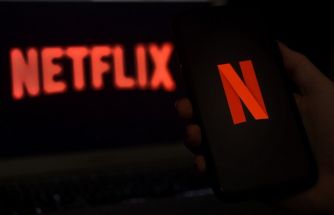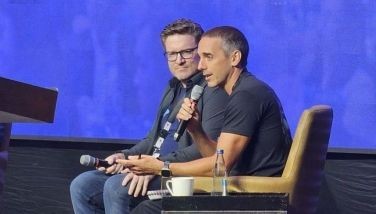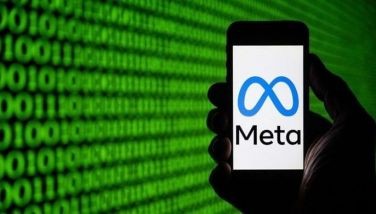Facebook‘s big bet: Doing business in the Philippines
MANILA, Philippines – Fresh from rolling out its technology roadmap in the next 10 years at its annual developer conference, Facebook announced on Thursday that it is officially opening a new office in the Philippines.
There could be plenty reasons for this move that the tech firm won’t fully let us in on at this point, but the numbers can speak for themselves: the Philippines has more than 49 million monthly active users on Facebook, which is 91 percent of the Internet user base in the country. More than 27 million (55 percent) of these users return to Facebook every day.
More than 32 million of these users are also connected to a business page and more than 95 percent of users discover new products and brands on the platform. Moreover, one in three users recommends a brand to friends and 64 percent make a purchase after discovery.
The Philippines is also a unique market in the sense that Filipino users are among the heaviest users of social networks not just in Southeast Asia, but globally.
According to TNS, Filipinos spend 3.1 hours per day on mobile. They have 1.6 times (60 percent) more friends and send 1.3 times (30 percent) more messages than the global average. People here also spend 46 percent more time (95 minutes) viewing mobile video than the global average (65 minutes).
So, first on the social media giant’s agenda in the Philippines is actually business or the prospect of doing business with the country’s top companies as well small businesses.
“We are here to help businesses large and small build their businesses on Facebook,” says Dan Neary, Facebook vice-president for Asia-Pacific, at a media briefing.
A platform for brand storytelling
Facebook believes that it has a lot to offer in terms of “creative canvasses” that could help Philippine businesses tell their brand stories.
Five to seven years ago, Neary says communication on the Internet and on Facebook was largely text-driven. As mobile phones proliferated with cameras, social media started to explode with photos. Then, swiftly, technology moved to video.
“I don’t think it will stop there. It (video) is becoming more immersive and we think that the next evolution in this is that you are going to see more videos on virtual reality (VR). That is one of the reasons why we heavily invested in a platform called Oculus,” he says.
Facebook Live, he adds, also gives everyone now the ability to live stream an event, which is another way for brands, companies, publishers and individuals to tell their stories.
There are many others, but Facebook is confident that its users’ identity on the social media platform is authentic and that as an advertising platform it boasts advanced audience targeting options.
It also has a very broad reach: 1.59 billion users globally, 241 million of which are in Southeast Asia. And it isn’t just Facebook. It also has 400 million active users on Instagram, one billion monthly active users on WhatsApp, and one billion people using Facebook Groups.
Even long before officially setting up shop here, Neary says they’ve already partnered with several Filipino companies on some campaigns, which have been very successful.
One of these projects is the campaign to position Nestle’s premium ice cream rage “Temptations” on Facebook through video. According to Neary, the videos received 6.8 million views with 80 percent completion rate. The campaign also resulted in a 30-percent increase in sales over three months.
“Companies in the Philippines are building their businesses and getting closer to their fans by connecting on Facebook. We are looking forward to helping you more build these kinds of connections, which is why we are thrilled about opening our office here in Manila,” Facebook COO Sheryl Sandberg said in a video message.
Mobile-first Filipinos
It isn’t clear yet what concrete directions the company will take as it starts its active local presence locally, but one thing it hinted was a strategy that may be big on mobile.
Again, the numbers speak volumes: Filipinos spend 3.1 hours per day on mobile, according to TNS. There are more mobile phones in the country than people (1.16 SIM cards per person, data from Milward Brown AdReaction shows). Some 44 million out of Facebook’s 49 million users in the country are on mobile.
Digital mobile advertising, however, is only 10 percent of the overall ad spend in the country in 2016, a 37.5 percent growth from last year, according to eMarketer. It is, however, bigger than ad spends for print (7.7 percent), radio (7.7 percent), and outdoor advertising (8.7 percent).
With 100 million hours of video watched on Facebook daily, it is interesting how services such as Facebook Live will compete.
A world more connected
Like most tech firms, Facebook has talked a lot about Artificial Intelligence (AI) and virtual reality (VR) in the past four months, launching many products and initiatives that place it at the cutting edge of technology. These mean more platforms for brands and companies to connect with consumers.
But Facebook’s more altruistic side has also seen it work to connect more of the world to the Internet, and this includes the Philippines, which needs more basic services such as Internet connectivity.
Facebook CEO Mark Zuckerberg affirmed at the F8 Developer Conference held earlier this month in the US that connecting the world is part of the company’s 10-year road map.
“It’s about bringing people together,” he says. “We stand for connecting every person, for giving people a voice, for the free flow of ideas and culture across nations.”
Across the world, Facebook has made efforts to achieve this through initiatives, such as the Free Basics program. In partnership with local telcos, it provides people free Internet connectivity so they can access basic services like news, maternal health, local jobs and government services, among others. Its critics consider it a discriminatory practice as it allegedly provides an unfair advantage to competitors.
Neary, however, cites its advantages, saying that over 25 million people have come online all over the world since the initiative was launched in 35 countries, the Philippines included.
“When people are connected, they can do amazing things,” Sandberg says in her video message, highlighting the story of a young woman from a small island in the Philippines who used Free Basics to connect with teachers, classmates and friends in the university when her hometown was ravaged by a typhoon.”
She went on to become the first in her family to earn a college degree.
We do need a lot of growing up to do in terms of how we use social media for a bigger goal and the greater good. And hopefully, Facebook’s presence here could address many issues in our digital journey, commercial or otherwise.
- Latest





























